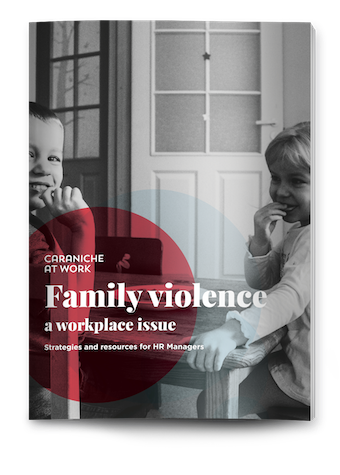
While it’s not your job to diagnose or be the therapist for your workmates or staff, there are important ways you can help if you think they might be having a difficult time, or struggling with their mental health.
A lot of us spend a large proportion of our lives at work with our workmates, which means we might be well-placed to notice changes in their normal mood or behaviour that could indicate that something is up.
Look out for repeated lateness, changed mood, and changes in performance.
You might also like to ensure you are familiar with the signs and symptoms of the most common mental health issues for Australians, such as anxiety, depression and substance abuse.
Have a conversation with your workmate or team member, ensuring you listen in a non-judgemental way, and knowing that they may not feel comfortable disclosing their problems right away.
It’s important to be aware of things the things that are unlikely to be helpful, such as
Instead, it can be helpful to:
For more tips on having a supportive conversation, Heads Up provides some useful pointers.
If you are concerned that your workmate may be at risk of suicide or self harm, make this the focus of your conversation. It’s a common myth that asking someone if they are suicidal will put the idea into their head. In reality, asking about suicide openly and directly is the only way to know if someone is at risk. There’s also no evidence that talking about suicide thoughts or behaviour is harmful.
Learn more about supporting someone at risk of suicide.
Make sure to take care of yourself too by reaching out to your support network, and taking some time out for yourself. You may also like to access your EAP service for support.
Support comes in many forms, and it’s important that your workmate or team member has supports that suit their needs. They might include:
Caraniche customers can call 1800 099 444, or book an appointment online.
You can call 24 hours a day, 7 days a week.
Download the Caraniche EAP brochure to learn more about the service.

Many of the new tech based EAPs have been making inaccurate claims about traditional EAPs as part of their marketing and promotion.
Read more
Moral injury in the workplace can negatively impact our psychological wellbeing and mental health. Here’s why it matters.
Read more
When choosing how to cultivate wellness in the workplace, it’s never been more important to take an organisation-wide approach. Here’s why.
Read more
Australian workplaces are waking up to the impact of family violence. Caraniche at Work has developed a free report for HR Managers who want to take the lead.